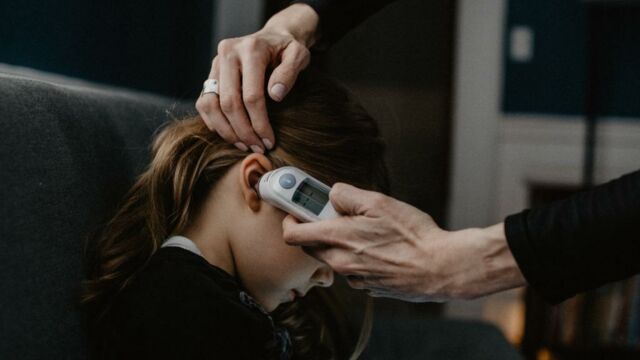COVID: Unusual symptom of Omicron variant is becoming more common

This 'funny' reaction could signal a possible Omicron infection in a child.
The Omicron variant has been spreading fast and wide in different age groups in the United Kingdom—including young children. Medical authorities in South Africa have already sounded the alarm, warning of a higher infection rate amongst children with the Omicron variant. Meanwhile in London, a general practitioner has observed an unusual symptom manifesting in British kids that have been infected with the same strain.
Discover our latest podcast
New common symptom
Dr. David Lloyd told Sky News that 15% of children sick with the new COVID variant have developed ‘funny rashes.’ He said:
More under this adMore under this adWe’ve always had a small cohort of patients with Covid who are getting funny rashes but up to 15% of the Omicron children are getting an unusual rash.
So we’re starting to learn a little bit more about the virus and we are starting to look out for it.More under this adMore under this ad
According to Dr. Llyod the Omicron variant has been presenting itself differently in children and adults. He’s asking parents to keep an eye out for these rashes, along with other symptoms including fatigue, a headache, and loss of appetite.
Officially, the most common reactions of COVID infection in children are fever, a ‘new and continuous’ cough, and a loss or change of taste or smell.
More under this adMore under this adInfection in children
As per the NHS, children are less likely to have an adverse reaction to the coronavirus and the same pattern has been reported with the new Omicron variant as well. However, given the recent discovery of the variant scientists are still pressing to find out more especially since data suggests that it is highly transmissible. Dr. Lloyd concluded:
The data suggests that it does double very quickly in the number of people that are in the community.More under this adMore under this ad
So let’s hope that it isn’t as deadly as the Delta and let’s hope that we can get on top of it. But it’s a concerning time.